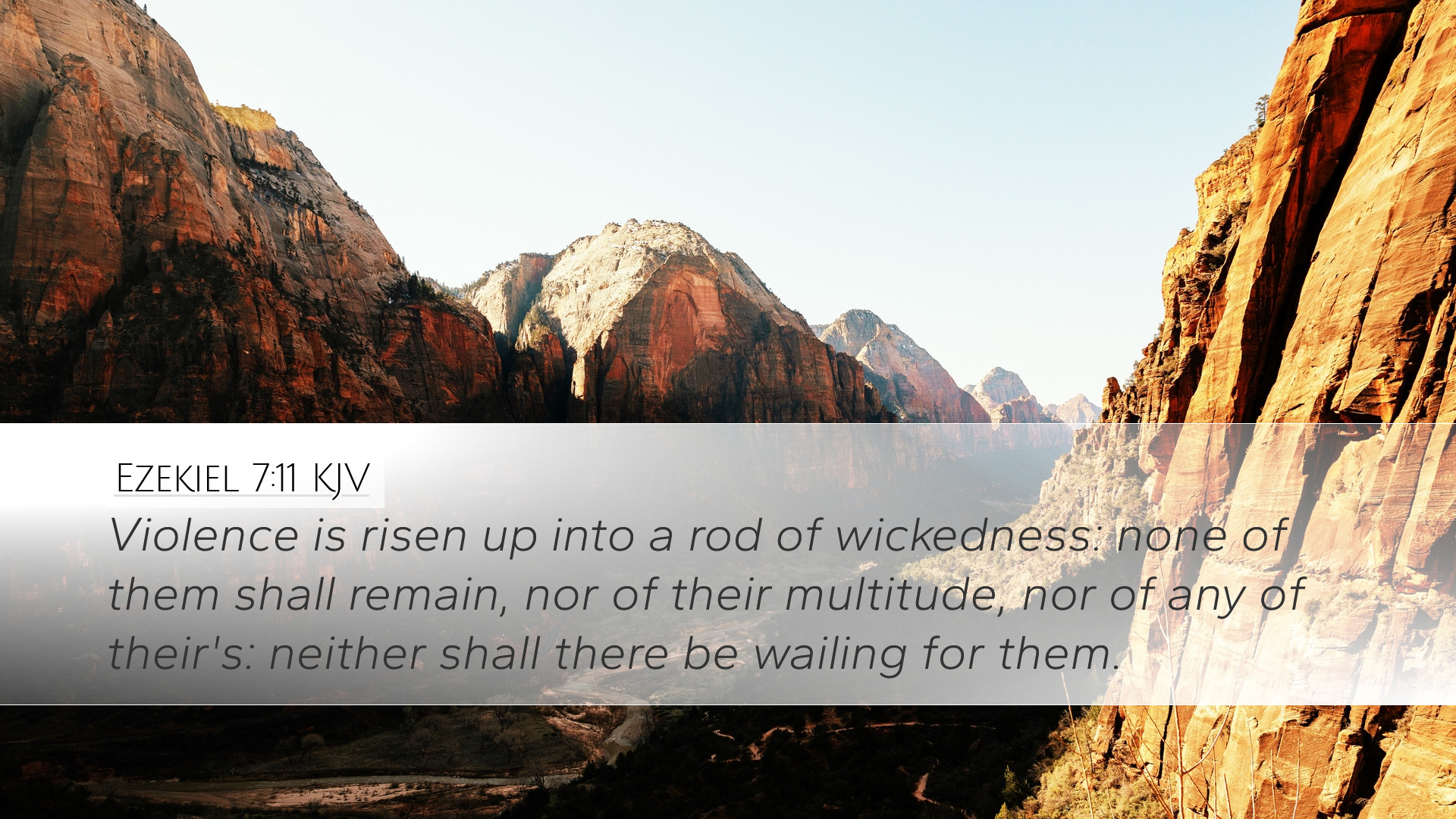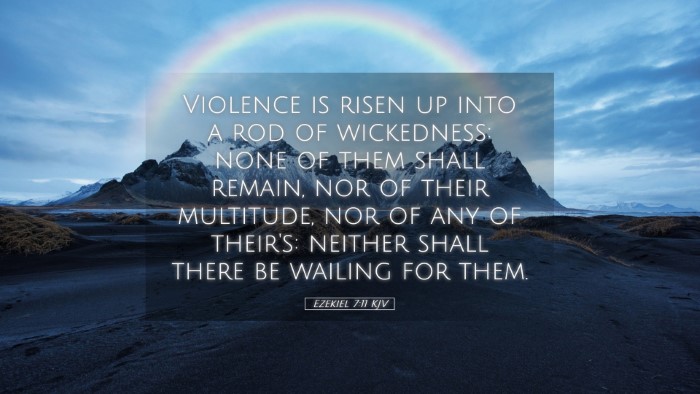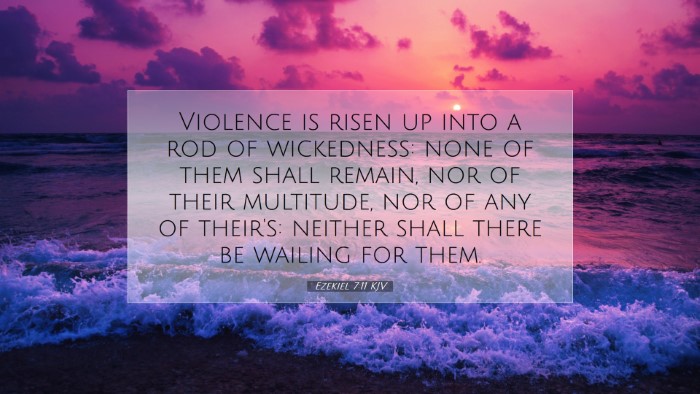Commentary on Ezekiel 7:11
Verse: "Violence has risen up into a rod of wickedness: none of them shall remain, nor of their multitude, nor of any of theirs: neither shall there be wailing for them."
Introduction
The prophecy found in Ezekiel 7:11 serves as a stark warning to the people of Israel about the impending judgment due to their iniquities. This verse encapsulates the themes of divine retribution and social chaos against the backdrop of God's covenant with His people. In examining this verse, we draw from the insights of public domain commentaries, particularly those of Matthew Henry, Albert Barnes, and Adam Clarke, providing a comprehensive understanding suitable for pastors, students, theologians, and Bible scholars.
Contextual Background
The Book of Ezekiel is set during a time of great turmoil for Israel, particularly in the context of the Babylonian Exile. The prophet Ezekiel, called by God, proclaims messages of both judgment and restoration. Chapter 7 specifically focuses on the coming devastation and the reasons behind it, emphasizing the sins of the people and God's righteous anger.
Matthew Henry’s Perspective
Matthew Henry highlights the implications of the "rod of wickedness" as symbolic of the divine punishment that will ensue due to the violent acts committed by Israel. He notes that this imagery signifies not just individual wickedness but a collective moral decay that has taken hold of the people. Henry states that wickedness has become so rampant that it no longer can be contained but has risen as a rod that oppresses.
Albert Barnes’ Insights
Albert Barnes elaborates on the phrase "none of them shall remain," underscoring the totality of the devastation that is to occur. He indicates that the judgment of God will be indiscriminate, affecting all classes of society without exception. This serves as a stark reminder of the seriousness of sin and its consequences. Barnes also points out the absence of mourning for the fallen, illustrating the complete spiritual desolation that accompanies such judgment. Such imagery conveys a lack of connection and sorrow for those who have succumbed to divine wrath.
Adam Clarke’s Analysis
Adam Clarke emphasizes the social implications of "violence" rising to prominence in the community. He argues that the escalation of violence is not only a reflection of societal breakdown but also a sign of divine abandonment. When violence becomes the norm, the foundational structures of society crumble. Clarke suggests that this prophecy serves as a cautionary tale for future generations regarding the inevitable consequences of persistent disobedience to God’s commandments.
Theological Implications
This verse raises critical theological discussions on the nature of God's justice and mercy. It serves as a reminder that God's patience has limits, and while He is slow to anger, He ultimately responds to unrepentant sin.
Judgment and Mercy
The principle of divine judgment as seen in Ezekiel 7:11 stresses that mercy is linked to repentance. The failure to return to God results in judgment that is comprehensive and inescapable. This is reflected in the collective suffering of the nation as a result of their communal sinfulness.
The Role of Community
The communal aspect of sin and punishment is significant; individuals do not exist in isolation from their societal context. The text makes it painfully clear that when a society turns away from God, the consequences are felt by all. It places a theological weight on the collective responsibility of a community to uphold righteousness.
Application for Today
Pastors and theologians can draw numerous applications from this verse for contemporary faith communities:
- Emphasis on Righteousness: There is a call for personal and corporate righteousness within the church. Practicing justice, mercy, and faithfulness is paramount.
- Acknowledgment of Consequences: Understanding that sin has serious consequences can motivate communities to take their spiritual health seriously and prevent moral decay.
- Call to Repentance: This passage may serve as a prompt for calls to personal and national repentance, encouraging believers to seek God earnestly.
- Community Responsibility: It highlights the importance of community accountability in faith, reinforcing the idea that believers are to bear one another's burdens while striving for holiness.
Conclusion
Ezekiel 7:11 stands as a powerful testament to the dangers of systemic sin and the dire consequences that follow. The insights garnered from Matthew Henry, Albert Barnes, and Adam Clarke provide a rich tapestry of understanding that can aid in both personal reflection and pastoral application. As we reflect on the impacts of violence and wickedness in our own time, the call remains clear: to strive for a community that reflects God’s righteousness, remembers its responsibilities, and continually seeks His mercy.


